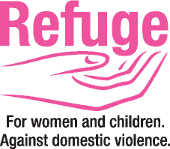Warwick Law School News
Warwick Law School News
The latest updates from our department
Suicide must not appear to be the only escape for some victims of abuse, warns new study
In one of the largest studies of its kind, and the first in the UK, experts from Refuge and the University of Warwick School of Law looked at the experiences of more than 3500 of Refuge’s clients with the aim of informing policy and practice in relation to victims of abuse who are at an increased risk of suicide.
The report found:
-
83% of clients came to Refuge’s services feeling despairing or hopeless – a key determinant for suicidality
-
At least 24% had felt suicidal at one time or another; 18% had made plans to end their life; 3% had made a suicide attempt
-
49% of the suicidal group scored within the ‘severe’ range on a measure of psychological distress
The level of support for survivors from professionals and external agencies was seen as crucial: the research found that long delays in obtaining support had the potential to exacerbate difficulties, victims needed adequate time to disclose the full impact of their abuse and a suitable environment to ‘tell their story’ at their own pace.
The report calls for a commitment to sufficient, specialist services, both outreach and refuge, for the survivors of abuse, and greater recognition of the risk of suicide among victims of domestic abuse.
P rofessor Vanessa Munro, Head of Warwick Law School and one of the authors of the report, said: “This study exposes the profound psychological harm that can be, and often is, inflicted by perpetrators of domestic abuse upon their victims.
rofessor Vanessa Munro, Head of Warwick Law School and one of the authors of the report, said: “This study exposes the profound psychological harm that can be, and often is, inflicted by perpetrators of domestic abuse upon their victims.
“In recent years, there has been much attention on the risk of domestic homicide, but remarkably little on the risk that victims may take their own lives as a result of the abuse that they endure.
“In exposing the scale of suicidality amongst Refuge’s client base, and exploring some of the challenges in supporting suicidal clients to safety and recovery, our findings can improve laws, policies and practice.”
Although the research does not explore the impact of having a suicidal parent, the authors recognise the harm that living with domestic abuse can have upon children, particularly when the abused parent is suicidal. The authors highlight the need for specialist services for children impacted by domestic violence, especially those bereaved in this context.
Refuge offers specialist support services to men, women and children victims of abuse and believes all are entitled to a compassionate and appropriate response, particularly those who are so distressed that they have considered suicide.
However, the gender split in Refuge’s sample broadly reflected national and international trends in domestic abuse perpetration and victimisation - a phenomenon in which women are overwhelmingly the victims and males the perpetrators. As such, the researchers appeal to all agencies to recognise domestic abuse as a gendered issue and a gendered crime.
Download a pdf of the report here.
The research was funded by Refuge and the ESRC via an Impact Acceleration Award from the University of Warwick (reference G.LAAA.0024) and conducted with Ethical Approval from the University of Warwick (reference 111/16-17).
About Refuge:
Refuge opened the world’s first refuge in Chiswick, West London, in 1971. Since then it has grown to become the country’s largest single provider of specialist support to women and children escaping domestic violence and other forms of gender based violence. On any given  day Refuge supports more than 6,000 women and children.
day Refuge supports more than 6,000 women and children.
Refuge’s national network of specialist services include: safe emergency accommodation through refuges in secret locations across the country; community-based outreach services; culturally specific services for women from South Asian, African and Caribbean, Eastern European and Vietnamese backgrounds; a modern slavery service; independent advocacy services for women at the highest risk of serious injury and homicide; a range of single point of access services for women, children and men across entire regions; and the Freephone 24 Hour National Domestic Violence Helpline, run in partnership with Women’s Aid.
